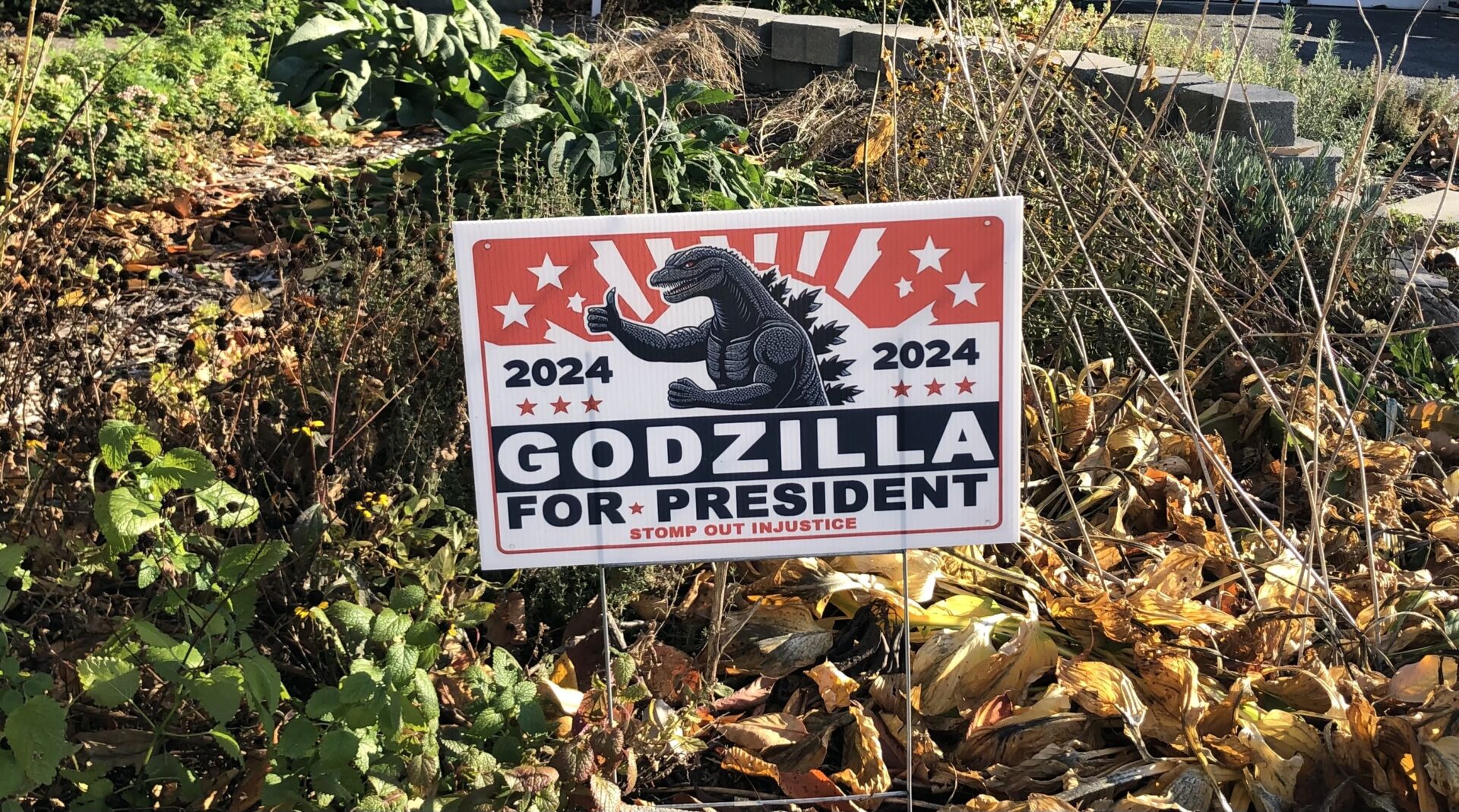The morning after the Great Debacle, I lay down in my backyard and gazed at the sky.
Inside, on my laptop, was the ephemeral – politics, presidents, punditry. Out here was the eternal — round clouds drifting eastward, glimpses of blue in the gaps between them.
A dark flock flew by, unaware that Donald Trump was returning to power.
This calmed me.
Earlier that morning, as I went about the ordinary chores of putting away the breakfast things and wiping down the kitchen counters, I felt as I did in the days following the 9/11 attacks – like I was performing rituals whose meanings I had forgotten.
I thought of Martin Luther’s apocryphal quote:
“Even if I knew that tomorrow the world would go to pieces, I would still plant my apple tree.”
The day after the election, someone I know in New York State saw a group of Hispanic teens leave a store just as a caravan of Trump supporters drove by, blaring their horns.
“Adios muchachos,” one of the Trumpies shouted. “Enjoy your trip back to Mexico.”
I heard about gay friends who are considering moving up their wedding date in case Trump and company pull the plug on same-sex marriage.
I thought of Jewish friends who have been talking about “the suitcase” – a short-hand way of getting ready to flee the country at a moment’s notice.
Hysterical, in the present circumstance? Hope so. I’m re-reading “The Oppermanns” this week, Lion Feuchtwanger’s novel, written in the 1930s, about a successful Jewish-German family who cannot imagine that they were about to be swallowed by “one of those great upheavals of concentrated, fathomless, worldwide stupidity.”
**
The weekend before the election, I was part of a group that had gone door-knocking in a neighborhood of modest houses and rowhouses outside State College. Yard signs were mixed: some Trump, some Harris, one “Godzilla for President 2024.”
Our timing was not great: during the Penn State-Ohio State game. We would be interrupting.
Some residents may not have heard us over the crowd-and-commentator noise on their TVs. Some, we suspected, peeked at us through curtains or blinds and pretended not to be home, which, I confess, is probably what I’m tempted to do when strangers knock on my door: Whatever they’re selling, I ain’t buying.
The reason I was out canvassing was that friends from New York, where Harris’s victory was assured, wanted to help get out the Democratic vote here in Pennsyl-thin-vania.
The noble volunteers in the Harris campaign’s field office had sworn up and down that reminding voters to vote or telling them where they vote or helping them arrange to get to the polls could be the difference maker.
But I wasn’t feeling like we were making much of a difference as we plodded from house to house, barking dog to barking dog, until an older gent answered the door, oxygen tube in his nose, fly open, wife peering over his shoulder, a dark and disorderly living room behind them.
“I wouldn’t vote for that moron if you paid me,” he rasped.
“That moron” was Trump.
Surely, I thought, there must be lots of guys like this guy, who see right through that scoundrel and will vote accordingly.
Yes, that’s how desperate I was for good omens: casting an old guy with an open fly as bellwether.
**
My other bellwether was turnout at the HUB. In 2008, the line of student voters snaked through the building and out onto the street. Enthusiasm for Obama ran high. There was nothing comparable in 2016, when Hillary Clinton ran.
From this vast scientific sample I developed a theory. Line out the door of The HUB: The Democrats win.
I stopped by the HUB twice on Election Day, first late in the morning, then at midafternoon. No lines out the door either time.
I rationalized: Maybe they’re better prepared now. More booths. Snaky lines, like at airports, rather than straight lines.
I also ignored this bad omen: The day before the election, I was in the bathroom. My Kamala button fell off my shirt and into the toilet.
I don’t believe in omens.
I do believe in self-medication. On Election Night, I thought I’d go with whiskey, neat. But we had two half-gallon tubs of Creamery ice cream, in honor of our New York house guests. We also had a jar of hot fudge sauce.
Turns out not even sundaes could soothe us.
The day after the election, after my cloud-gazing session, I made my way to campus. In front of the Willard Building, Leisha Jones’s creative writing class was encouraging passersby to write poems. One way to do it was with Haikubes – dice with words on all their sides. Roll five and compose – you guessed it – a haiku using the five words.
My five: last – woman – dancing – kiss – cheeks.
Too easy, right?
Will the last woman on Planet Earth
please stop dancing
and kiss my cheeks?
My participation trophy was a fortune cookie. The message:
To be mature is to accept imperfections.
I’m trying.



